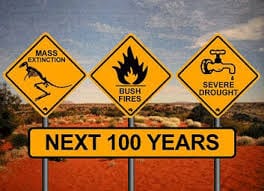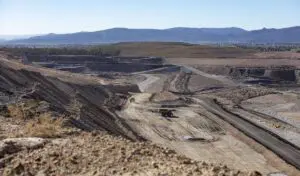The complex issue of climate change is one that our race is struggling to address. The solutions are not beyond us in any way. Technological solutions exist, scientific knowledge is plentiful, the world can afford the transition but still significant action eludes us.
Rational arguments for rapid action abound. We do not need any more of those. What is needed is a different way of communicating that inspires and attracts the widest possible group of humans towards wanting to travel on this same journey.
A global project to change the way climate change is communicated will be launched this week in Brisbane. It provides an opportunity for everyone to write and share their vision of a better world.
The VISIONS 2100 Project is set to redefine how to engage communities on important but slow moving issues such as climate change and poverty eradication. It has been launched because the vast majority of environmental communication to date has failed to engage the wider community, something that is critical to achieve to reduce the worst impacts of climate change.

The standard operating procedure for environmental communications is to tell people that unless they change their ways bad stuff will happen. When the ‘bad stuff’ has immediate impacts such as water or air pollution, this tactic works. When the consequences are not immediate and the threat is not imminent, then this completely fails to have meaning for most people.
Those living on low lying islands see climate change as an imminent threat but most of the world does not. The messages of future catastrophe are therefore futile.
A new standard operating procedure is required to be able to engage widely and thereby bring forward the timing of climate action and save maybe hundreds of millions of lives.
Telling visions of a better world is one way to change the story. It engages a very different part of the mind, attracts people towards something better – to a paradigm that better fits the way the world works.
Visions can mobilise communities, countries and global networks to deliver extraordinary outcomes. Visions can and do change the world.
The VISIONS 2100 Project has assembled eighty visions of a better world in the year 2100 from some of the world’s leading environmental thinkers and influencers. It includes those leading the process of making global agreements on climate change and those working on leading technology solutions. These are the people who are shaping your future world. Their visions tell of the future they are passionate to achieve.
Contributors include Mary Robinson, former President or Ireland and now a UN Climate Ambassador, Christiana Figueres, Executive Secretary of the UNFCCC and Bill McKibben, activist and founder of 350.org. There are also plenty from Australia including Chief Scientist Professor Ian Chubb, the Chief Scientist, Nobel Laureate Professor Peter Doherty and explorer and founder of www.25zero.com, Tim Jarvis.
Editor’s Note: RenewEconomy will be running a number of extracts from the VISIONS 2100 Project over the coming weeks.










